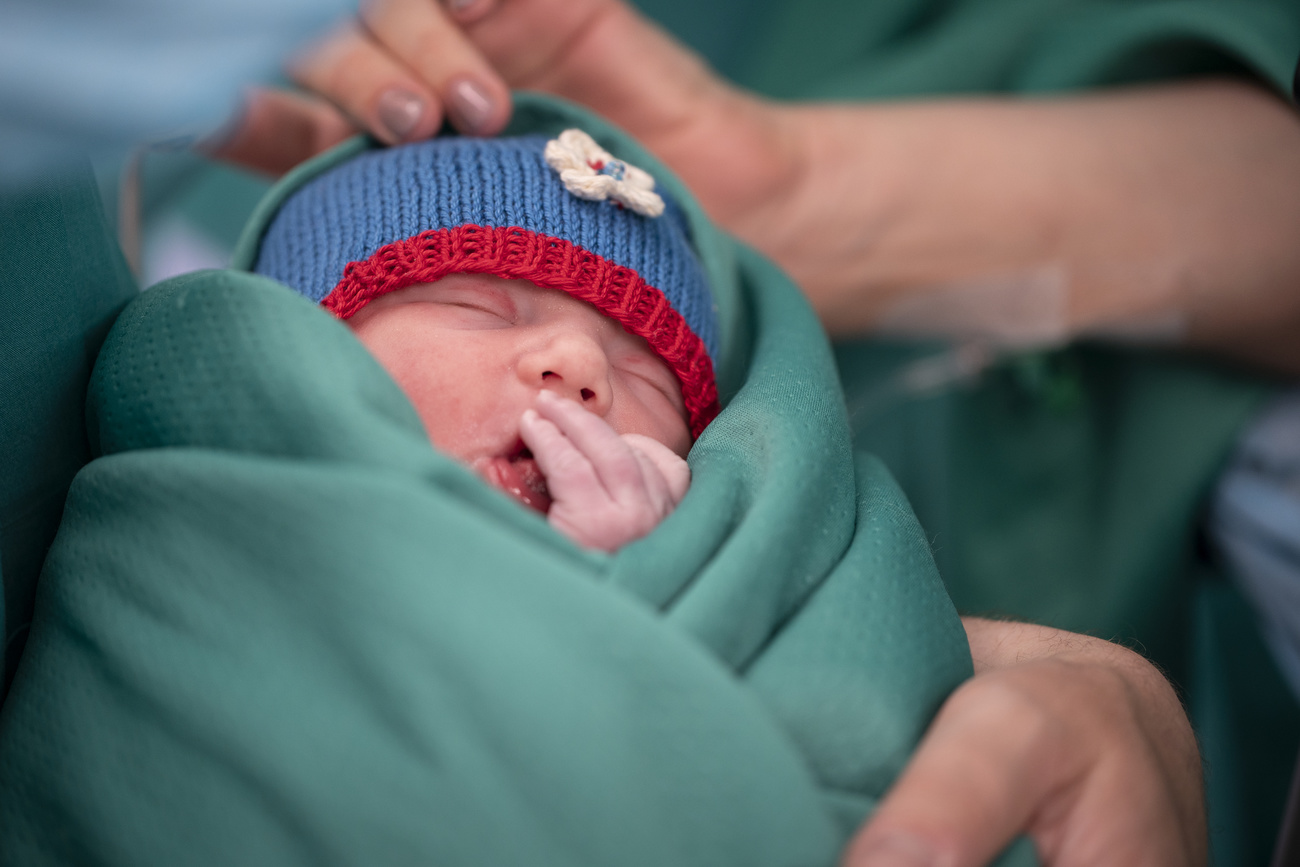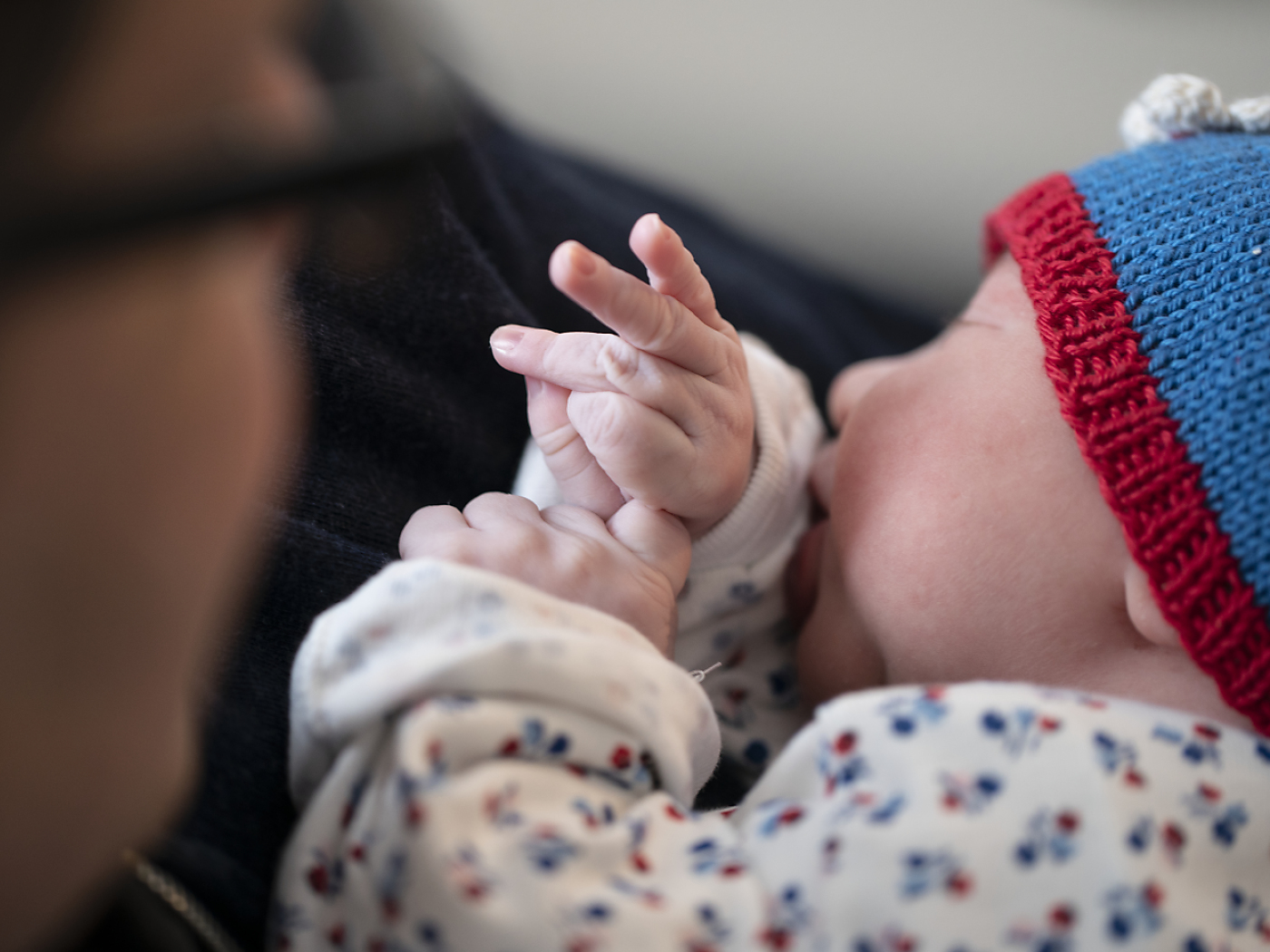
Advent Seeks to Buy Swiss Chipmaker U-blox in $1.3 Billion Deal
(Bloomberg) — Advent International offered to buy U-blox Holding AG, a Swiss maker of positioning chips, in a deal valued at about 1.05 billion Swiss francs ($1.3 billion).
Advent’s cash offer of 135 Swiss francs per share, while representing a 53% premium over volume-weighted averages of the last six months, is less than U-blox’s closing price of 138.60 Swiss francs on Friday.
U-blox shares jumped almost 25% on Friday after Bloomberg News reported on the potential transaction, marking their biggest one-day gain since August 2022. The shares are up about 90% this year.
Assuming a 21-day offer period, the acceptance window would run until about Oct. 29, Advent said in a statement.
It’s the latest private equity move into undervalued European stocks, which includes recent bids by Nordic Capital and Permira for Danish vaccine maker Bavarian Nordic. For Advent, U-blox would be the latest in a string of European targets, after deals involving Spectris Plc and Tinexta SpA.
U-blox, which designs chips and modules for positioning technology used in cars, drones, and consumer devices, recently shed its loss-making cellular business. U-blox CEO Stephan Zizalads has said the company’s focus is shifting toward automated driving and mobile robotics.
–With assistance from Susanne Barton.
©2025 Bloomberg L.P.
Trump made direct financial demands during call with Swiss president

During the telephone call between Karin Keller-Sutter and Donald Trump on July 31, Trump demanded direct payments from Switzerland, according to an investigation by SonntagsBlick. Contrary to initial assumptions, the conversation was not initiated by Keller-Sutter, but by the US Trade Representative.
+Get the most important news from Switzerland in your inbox
The details of the July 31 telephone conversation between Swiss President Karin Keller-Sutter and her American counterpart Donald Trump had remained very vague until now. But an investigation by the SonntagsBlick newspaper, based on well-informed sources, has revealed some details.
Contrary to what was initially assumed, the call that preceded the 39% tariffs being imposed by the Trump administration was not initiated by Keller-Sutter, but by the US Trade Representative, Jamieson Greer. The latter is, in a way, “Switzerland’s secret observer within the US government,” notes the SonntagsBlick.

More
How should Switzerland respond to the US tariffs?
During the phone meeting, Trump made direct financial demands of the Swiss president. In particular, he referred to the European Union’s $600 billion (CHF484 million) in investments, reports the Sunday newspaper, presenting them not as investments but as a gift. “What are you paying me?” the US president then reportedly asked.
‘I don’t care about them’
Trump also reportedly showed condescension towards his own officials when Keller-Sutter mentioned the declaration of intent between Washington and Bern that the Swiss government had previously negotiated with Trump’s staff, namely Greer and his team. “I don’t care about them!” he told the Swiss president.
When questioned by the German-language newspaper, a spokesperson for Keller-Sutter declined to comment.
Translated from French with DeepL/gw
We select the most relevant news for an international audience and use automatic translation tools to translate them into English. A journalist then reviews the translation for clarity and accuracy before publication.
Providing you with automatically translated news gives us the time to write more in-depth articles. The news stories we select have been written and carefully fact-checked by an external editorial team from news agencies such as Bloomberg or Keystone.
If you have any questions about how we work, write to us at english@swissinfo.ch.
Demonstrators in Swiss capital demand better access to mental health care

Thousands of people demonstrated in Bern on Saturday afternoon in favour of access to mental health care for all. They condemned the long waiting lists, the lack of access to therapy and the absence of a clear pricing system.
+Get the most important news from Switzerland in your inbox
The demonstrators, who organisers said totaled around 5,000, held banners proclaiming, among other things, “Psychotherapy should not be a luxury” and “Your therapist is angry”. A minute’s silence was observed in memory of victims of suicide.
“Health is not a market,” said psychotherapist Valentina Achermann, a member of Bern’s city parliament. She called for “money, time and respect”. In her view, it is unthinkable that people in one of the richest countries in the world should have to wait so long to see a therapist.

More
Is Switzerland in a mental health crisis?
Affordable for all
In their call to demonstrate, the rally organisers demanded that psychotherapy should be accessible and affordable for all. To achieve this, they called for adequate fees, less bureaucracy, affordable training places and better working conditions. The organisers also called for solidarity with those affected.
The demonstration was organised by the “Mental Health for All” initiative, a group of professionals, students and people interested in the field of psychotherapeutic care throughout Switzerland. Their demands were supported by the Social Democrats, the Green Party and various trade unions and organisations active in the health sector.
Disputed pricing system
The organisers are critical of the prescription model in force since 2022, which has been the subject of bitter negotiations between professional organisations and health insurers. Psychotherapists can have their services reimbursed by basic health insurance if patients have a doctor’s prescription. However, insurers are complaining that this will lead to additional costs and are planning to reduce fees.
More
The professional organisations did not take an active part in the demonstration, so as not to offend the negotiating partners at this delicate time, said the Zurich cantonal association. A draft national price system has been on the table since June.
Translated from French with DeepL/gw
We select the most relevant news for an international audience and use automatic translation tools to translate them into English. A journalist then reviews the translation for clarity and accuracy before publication.
Providing you with automatically translated news gives us the time to write more in-depth articles. The news stories we select have been written and carefully fact-checked by an external editorial team from news agencies such as Bloomberg or Keystone.
If you have any questions about how we work, write to us at english@swissinfo.ch.
Swiss businesses plan employee pay raises in 2026

Swiss companies’ expectations for salary growth are down by 0.3 percentage points compared to a year ago. These are the findings of the latest salary survey conducted by the Center for Economic Research (KOF) at the federal technology institute ETH Zurich. The survey was conducted with around 4,500 firms.
+Get the most important news from Switzerland in your inbox
Experts say that companies are expecting an average wage growth of 1.3% in 2026. After deducting the 0.5% rise in inflation expected by the KOF, employees would therefore benefit from a real salary increase of around 0.8%, the research centre told the Keystone-SDA news agency on Sunday, confirming an article in the NZZ am Sonntag.
Compared to last year’s salary survey, companies’ expectations for salary growth are down by 0.3 percentage points. According to the KOF, this is due to a lower shortage of skilled labour and a sharp fall in inflation in recent months. Over the past three years, companies’ forecasts for nominal wage growth have therefore fallen steadily.

More
How inflation and global uncertainty affect Swiss wages
US tariffs not taken into account
The data was collected before the United States imposed new customs duties of 39% on Swiss imports, the KOF points out. “It is precisely in industrial companies with a strong orientation towards the United States that the customs duties are likely to reduce wage-growth forecasts”, says the research centre.
+ What do 39% US tariffs mean for the Swiss economy?
The construction sector is faring better, with an expected rise of 1.7%. Hotel and restaurant companies are also expecting a relatively high wage growth of 1.5%. The weakest improvements are expected in wholesaling (0.9%), manufacturing and the retail trade (1.1%).
Since 2022, the KOF has been surveying the wage expectations of private sector companies on a quarterly basis.
Translated from French with DeepL/gw
We select the most relevant news for an international audience and use automatic translation tools to translate them into English. A journalist then reviews the translation for clarity and accuracy before publication.
Providing you with automatically translated news gives us the time to write more in-depth articles. The news stories we select have been written and carefully fact-checked by an external editorial team from news agencies such as Bloomberg or Keystone.
If you have any questions about how we work, write to us at english@swissinfo.ch.
One Swiss national killed in plane accident in southern France

A Swiss national was killed alongside a German national in a crash involving two light leisure aircraft on Saturday afternoon in Saint-Pons, south-eastern France, news agency AFP learned from local authorities.
+Get the most important news from Switzerland in your inbox
A tow plane and a glider took off shortly after 1 p.m. from Barcelonnette aerodrome. The accident occurred shortly afterwards in the Ubaye valley, according to the same source.
A fire spread to the vegetation but was quickly brought under control, according to the department’s fire brigade.
+ Accidents during leisure time on the rise in Switzerland
The circumstances of the accident remain to be determined, the police said.
Translated from French with DeepL/gw
We select the most relevant news for an international audience and use automatic translation tools to translate them into English. A journalist then reviews the translation for clarity and accuracy before publication.
Providing you with automatically translated news gives us the time to write more in-depth articles. The news stories we select have been written and carefully fact-checked by an external editorial team from news agencies such as Bloomberg or Keystone.
If you have any questions about how we work, write to us at english@swissinfo.ch.
Over 6,000 apprenticeships remain unfilled in Switzerland

By mid-August, which is the start of the Swiss school year, some 6,400 apprenticeship vacancies remain, mainly in the construction, catering and machinery industries. This is a quarter fewer than 12 months ago (8,500).
+Get the most important news from Switzerland in your inbox
These figures, published on Friday by the Yousty apprenticeship platform, show that companies are finding it less difficult to recruit this year. The number of young people applying for apprenticeships has also risen, Yousty spokesperson Lale Scirocco told news agency Keystone-SDA.

More
Why the world should take note of the Swiss apprenticeship model
In addition, companies have been running active campaigns, particularly on social networks. Of the 6,400 vacancies, almost 1,800 are in the construction sector, 600 in the catering industry and the same number in the machinery and health sectors.
Translated from French with DeepL/gw
We select the most relevant news for an international audience and use automatic translation tools to translate them into English. A journalist then reviews the translation for clarity and accuracy before publication.
Providing you with automatically translated news gives us the time to write more in-depth articles. The news stories we select have been written and carefully fact-checked by an external editorial team from news agencies such as Bloomberg or Keystone.
If you have any questions about how we work, write to us at english@swissinfo.ch.
How Switzerland deals with potentially problematic first names

In Germany, a newborn is to be given the name Yahya Sinwar – like the former Hamas leader. Would this be possible in Switzerland? How liberal is the country when it comes to first names?
In Germany, a newborn baby is to be named Yahya Sinwar, it has been reported. The name tallies with that of the slain Hamas leader, which can be spelled Jihia al-Sinwar or Yahya Sinwar.
Sinwar is considered the mastermind behind the October 7, 2023 massacre in Israel. The name appeared in an Instagram story posted by the obstetrics department at the Leipzig University Hospital.
The newspaper Jüdische Allgemeine first reported on the case and quoted Jewish musician Ben Salomo, who raised the question of whether the name should be allowed.
Rules in Switzerland
In Switzerland, there is no list of proscribed first names. Article 37c(3) of the Civil Status Ordinance simply states that “the registrar shall reject first names that clearly harm the interests of the child”.
The naming process is reviewed on a case-by-case basis by the respective civil registry offices, which have the option of rejecting certain names. Parents can challenge such a decision in court.
Talking to the parents
Before the registry offices formally reject a name, they try to have a dialogue with the parents. In most cases, a solution is worked out, according to several civil registry offices and cantons contacted by SRF.
In some cases, parents are also advised to use a certain name as a middle rather than first name, says Madlen Brunner, head of the civil registry office in the city of Lucerne. “For example, we once allowed the name Hurricane as a middle name,” she says.
Double surnames are a polarising issue in Switzerland. Where does the country stand in the debate?

More
Why double surnames are stirring controversy in Switzerland
Rejections are rare
It’s rare for civil registry offices to formally reject names chosen by parents. When contacted, canton Bern’s Population Office said there are only a few such isolated cases per year. Since January 1, 2024, just one name was rejected. The civil registry office of the city of Lucerne also says the number of rejections is negligible.
There was one court case in the early 1990s when the first name Schmucki was chosen for a child – the mother’s maiden name. The Federal Court ultimately rejected the name.
According to the Department of Justice and Security of canton Basel City, the number of unusual name requests is increasing. However, a discussion is only needed in isolated cases, it says.
A matter for discussion
Discussions with parents are sought, for example when well-known brand names are used, according to authorities in Basel.
However, it may also happen that the parents can prove that the name is well-founded – for example, because it is common in another cultural context.
Canton Bern meanwhile states that first names which are clearly feminine are not accepted for boys and vice versa. In addition, names featuring combinations of numbers and symbols, like ‘M1l@’, are not accepted.
Markus Stoll, head of the canton Zurich civil registry department, says that discussions typically arise when one parent’s surname is to be used as a first name, because Switzerland does not allow children to have double surnames.
“The name Junior, often used as a first name in Brazil, is also a source of recurring debate,” Stoll says. But overall, he explains, civil registry offices in Switzerland have by now become very generous when it comes to naming children.

More
Mia and Noah most popular names for Swiss babies in 2023
Adapted from German by DeepL/ac
Japanese film Tabi to Hibi wins Golden Leopard at Locarno

The Japanese film Tabi to Hibi by director Sho Miyake won the Golden Leopard, the top prize in the international competition, on Saturday, the final day of the Locarno Festival.
+Get the most important news from Switzerland in your inbox
Writer-director Sho Miyake’s film is made up of two independent plots, each based on a manga by cartoonist Yoshiharu Tsuge. The first story takes viewers to the seaside in summer, where a sensual encounter between the characters Nagisa and Natsuo takes place.
The second part of the film takes viewers to a snowy village in winter. Here screenwriter Li meets Benzo, who runs a guest house. While the first encounter is silent and sensual, the second prompts Li to reflect on her life.

More
Locarno Festival sheds light on an under-appreciated era of British cinema
By winning the Golden Leopard, Tabi to Hibi beat out 17 other films in the international competition at the 78th Locarno Film Festival. The prize for best director went to the Iraqi-French director Abbas Fahdel for his film Tales of the Wounded Land, about daily life in southern Lebanon during and after the war.
Double award for White Snail
The best-performance prizes went to Manuela Martelli, a Chilean national, and Ana Marija Veselcic, a Croatian, for the film God Will Not Help, and to Marya Imbro and Mikhail Senkov, both Belarusian, in White Snail, an Austrian-German co-production. This drama also won the Special Jury Prize.
In White Snail, Marya Imbro plays a young, suicidal Belarusian woman who dreams of a career as a model. While in hospital, she observes Misha, played by Mikhail Senkov, who works in the morgue.

More
How Locarno became the ‘city of peace’
His work, which is so close to death, fascinates her. These marginal characters, with a veil of sadness hanging over them, eventually come to love each other.
Special mention
The two Swiss co-productions in the international competition were honoured in other categories. Le Lac by Neuchâtel director Fabrice Aragno won a special mention in the Ecumenical Jury Prize. The first film by this former accomplice of Jean-Luc Godard follows the duo of Clothilde Courau and Swiss yachtsman Bernard Stamm in a race lasting several days on Lake Geneva.
It also won first prize in the Junior Jury Awards, while Valentina and Nicole Bertani’s Les moustiques (The Mosquitoes), the second Swiss film in international competition, received a special mention.
Award-winning actor in a Swiss film
In the Filmmakers of the Present section, the first feature film by Zurich director Jacqueline Zünd, Don’t Let The Sun, may not have won the Golden Leopard, but it did win the prize for best performance. This went to Georgian actor Levan Gelbakhiani, who plays father to nine-year-old Nika at her mother’s request.
Translated from French with DeepL/gw
We select the most relevant news for an international audience and use automatic translation tools to translate them into English. A journalist then reviews the translation for clarity and accuracy before publication.
Providing you with automatically translated news gives us the time to write more in-depth articles. The news stories we select have been written and carefully fact-checked by an external editorial team from news agencies such as Bloomberg or Keystone.
If you have any questions about how we work, write to us at english@swissinfo.ch.
Switzerland could produce up to 5Mt of emissions annually by 2050

Two to five megatonnes of CO2 equivalents per year: this is the amount of greenhouse gas emissions that Switzerland is still expected to produce annually in 2050, even if it achieves its goal of reducing emissions to net zero.
+Get the most important news from Switzerland in your inbox
This is shown by a study by the Paul Scherrer Institute, which was published in the journal Nature Communications Earth & Environment. The study analysed the global ecological footprint of a “net-zero Switzerland”.

More
Why Switzerland is among the ten fastest-warming countries in the world
The fact that net zero does not really mean zero is due to the fact that Switzerland continues to generate emissions outside its borders. The study estimates that these indirect emissions currently account for around a quarter of Switzerland’s total emissions.
The researchers took a holistic view of emissions: for example, the operation of an electric car also causes emissions through the battery and the construction of the electricity grid.
Translated from German with DeepL/gw
We select the most relevant news for an international audience and use automatic translation tools to translate them into English. A journalist then reviews the translation for clarity and accuracy before publication.
Providing you with automatically translated news gives us the time to write more in-depth articles. The news stories we select have been written and carefully fact-checked by an external editorial team from news agencies such as Bloomberg or Keystone.
If you have any questions about how we work, write to us at english@swissinfo.ch.
US tariffs putting 100,000 jobs at risk in Switzerland

United States tariffs of 39% on Swiss imports will directly affect 100,000 jobs in Switzerland, mainly in the watchmaking, machinery, metals, and food industries, warned the business umbrella organisation economiesuisse on Friday.
+Get the most important news from Switzerland in your inbox
For the Swiss business federation, “the consequences could be even heavier, as suppliers and service providers also suffer indirectly”.
On August 1, Washington announced that Swiss exports to the US would be subject to customs duties of 39% from August 7, citing the trade deficit between the two countries. Pharmaceutical products, the driving force behind Swiss exports, are exempt for the time being, but US President Donald Trump has promised tariffs of up to 250% if the pharmaceutical groups do not reduce their drug prices.
“If customs duties were to be levied on medicines, many jobs in the pharmaceutical industry would also be affected”, warned economiesuisse.
+ Swiss government working with firms to overcome high US tariffs
Specifically, the electronics and watchmaking sectors would see nearly 20,000 jobs affected by customs duties, followed by the food and tobacco sector (close to 14,200 jobs) and pharmaceuticals (around 13,900 jobs).
Suppliers also in turmoil
“In reality, exporting companies probably have more employees on average, which is why the actual number of people affected could be higher”, said the umbrella organisation.
According to the federation, “the negative consequences of the competitive disadvantage represented by the US tariffs will not be limited to companies exporting to the United States”, but “will also affect suppliers to the Swiss export industry”.
+ How should Switzerland respond to the US tariffs?
While the Swiss government has expressed its determination to continue the dialogue with the US, economiesuisse has called on political leaders to “quickly and effectively lighten the administrative and regulatory burden on companies” and to “offset the competitive disadvantage on the US market by improving the framework conditions in Switzerland”.
Translated from French with DeepL/gw
We select the most relevant news for an international audience and use automatic translation tools to translate them into English. A journalist then reviews the translation for clarity and accuracy before publication.
Providing you with automatically translated news gives us the time to write more in-depth articles. The news stories we select have been written and carefully fact-checked by an external editorial team from news agencies such as Bloomberg or Keystone.
If you have any questions about how we work, write to us at english@swissinfo.ch.






























